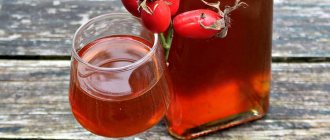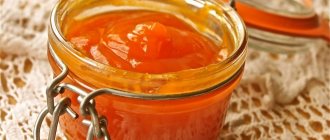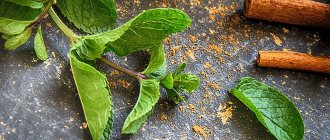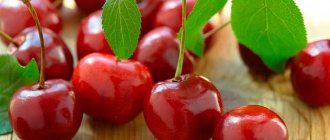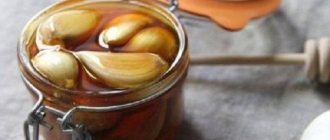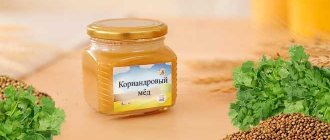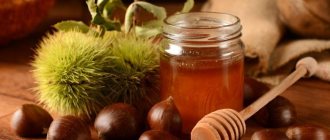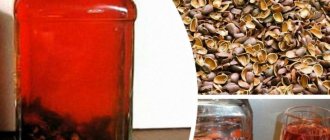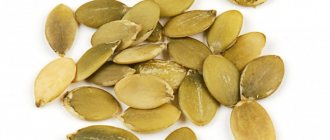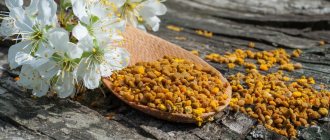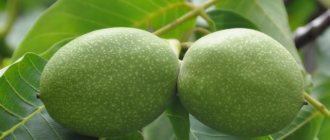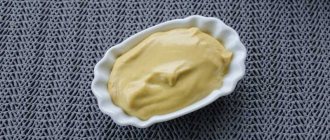Chemical composition of carrots
Everyone knows that carrots are a healthy vegetable for the human body, as they are rich in:
- β-carotene;
- calcium;
- potassium;
- zinc;
- copper;
- vitamins: C, B, PP, H, A, E;
- acids: malic, folic;
- flavonoids.
Vitamins and microelements are retained in carrots even during heat treatment, so a drink based on it is also very healthy. The most useful is tea made from carrot tops, which, in addition to the above-mentioned beneficial substances, also contains large quantities of vitamin K and selenium, iodine, chlorophyll and caffeine.
Beneficial properties of carrot tea
Carrot tea is usually used for:
- viral and colds;
- eye problems;
- problems with digestion and some diseases of the gastrointestinal tract;
- kidney diseases;
- prostate problems;
- hypertension;
- constipation
Did you know? Usually, when vegetables are heat treated, the amount of antioxidants in the composition is significantly reduced, but in carrots the opposite is true.
—
the antioxidant content doubles, which makes the vegetable even more beneficial.
- What is the benefit:
- Carrots are most beneficial for a child’s body when active skeletal growth occurs, so the drink helps strengthen bones.
- The drink stimulates the immune system and protects the body from the effects of viruses and bacteria.
- The product is characterized by low calorie content and dulls the feeling of hunger well, so it can be drunk by people who are on a diet.
- Carrots have a positive effect on the skin, slow down the aging process of the body, resist acne, regulate the functioning of the sebaceous glands, improve complexion, and strengthen vascular walls.
- The drink improves metabolism, removes waste and toxins, and cleanses the blood.
- Women value it very much because it has a beneficial effect on nails and hair, helps strengthen them, and treats seborrhea and fragility.
Carrot tea recipes
On the Internet you can find many recipes for carrot tea using fresh, dried vegetables or tops. Below are the best recipes with a detailed description of the preparation process and consumption characteristics.
From fresh carrots
Fresh vegetables are suitable for making tea all year round, but the best choice for these purposes is a freshly harvested product that contains the maximum amount of vitamins and juice. To make tea, you should use high-quality carrots without signs of rot, damage, disease or pests.
Important! It is best to prepare tea from small root vegetables that have a bright orange color.
-
these carrots are much sweeter and have a richer taste and aroma.
To brew a delicious drink, it is recommended to follow the instructions:
- The carrots are thoroughly washed under running water several times to get rid of dust and dirt.
- The vegetable is peeled and chopped using a grater or meat grinder.
- Pour grated carrots into a preheated teapot, pour in 250 ml of boiling water and seal tightly.
- Leave the drink to brew for 30 minutes.
To improve the taste, you can add sugar, honey or your favorite spices to the cooled drink for flavor. You can drink the prepared amount immediately or half a serving 2 times a day.
From dried carrots
There are several ways to prepare dried carrots, which are ideal for making tea:
- Dry in the oven : root vegetables washed under running water are peeled. You can grind the vegetable using a meat grinder or a grater with large links. The raw materials are initially laid out on wax paper, the juice is allowed to drain and sent to dry in the oven on a baking sheet covered with parchment paper. The oven should already be warmed up to 100°C at this point. The temperature is reduced to 80°C and the carrots are dried until they acquire a light brown color. The drying time depends on the type of oven and takes on average 1.5–2.5 hours. When the root vegetable has dried well, you need to remove the baking sheet and leave it at room temperature so that the carrot tea cools completely.
- Dry naturally : in the summer, on a sunny day, carrots dry well and quickly outside under the scorching sun. Washed root vegetables are removed from the skin and cut into small cubes or strips. To ensure that the carrots are well dried on all sides, they are laid out on a sheet of metal covered with parchment paper. During the drying process, the raw materials should be mixed 3-4 times a day. At night the carrots are brought indoors, and the next day they are taken outside again. The procedure should be repeated until the chopped vegetable dries well. This may take 2–4 days, depending on the air temperature and location.
- Dry in an electric dryer : The easiest way to prepare carrot tea is to use a special vegetable dryer. The prepared vegetable (washed, peeled) is grated on a coarse grater and placed in the dryer. It is necessary to set the mode and temperature based on the recommendations specified in the instructions for the device. The drying time also depends on the characteristics of the device and can range from 4 to 8 hours.
Video: Preparing carrot tea for the winter
Tea made from dried vegetables tastes better than fresh tea; it is more aromatic and rich in flavor. To prepare a drink for 1 tbsp. l. carrot tea use 200 ml of boiling water. The tea leaves are poured into the teapot, filled with water and sealed with a lid. The drink should be infused for 30 minutes, consumed without additives or with sugar/honey/spices. The amount of drink consumed per day should be up to 300 ml.
From carrot tops
Carrot tops are also often used to brew healthy tea. The tops can be used freshly cut or dried.
Important! Fresh carrot tops are bitter, so they can spoil the taste of the drink; to avoid this, it is recommended to scald the greens several times with boiling water before brewing.
Let's consider 2 options for tea from tops:
- with fresh : to prepare the drink, select young green stems with leaves, wash under running water several times and chop with a knife. For 200 ml of boiling water use 1 tsp. greens, leave for 10 minutes, covered. Strain, add honey or sugar to taste;
- with dried : to prepare the drink, brew dried tops (1 tsp) with boiling water (1 cup), leave for 10 minutes to brew. To give a pronounced aroma, add a little black, green tea or spices.
To prepare the tops for the winter, they are dried in the sun in the hot summer. Freshly picked leaves are thoroughly washed and cut with a knife, laid out on a newspaper under the scorching sun, stirred 3-4 times throughout the day. It takes 2 days for the tops to dry completely. Tea from carrot tops should be taken 100 ml 2-3 times a day 15 minutes before meals.
Carrot tea with herbs and berries
Carrot tea is very tasty with the addition of a variety of fruits and herbs, which makes it richer and more aromatic. This drink can be consumed 2-3 times a day, 1 cup, as a replacement for regular tea or coffee.
To prepare the drink, you should mix 2 tbsp of rose hips, currants, raspberries. l., dried carrots - 3 tbsp. l., dried nettle - 1 tbsp. l., mint - 1 tbsp. l. Dry ingredients should be poured into 1 liter of boiling water and left in the teapot for 1 hour. After the specified time, strain the drink and drink with the addition of honey or in its pure form.
Did you know? Homeland of carrots
—
Afghanistan, where carrots grew purple in the wild. The familiar orange carrots were bred in the Netherlands, improving the taste characteristics and size of the vegetable.
Carrot Root Tea Recipes
Carrot tea is beneficial and does not cause harm to the body except for allergies, so it can be consumed daily. To prepare it, 1 – 2 tsp. dried carrots are placed in a teapot and pour 250 ml of boiling water, leave for 30 minutes and drink. It is better to drink this aromatic drink without adding sugar; in extreme cases, sweeten it with honey, so the drink will be more healthy. When using dried carrots mixed with black tea, the brewing time is reduced to 5 – 10 minutes.
Carrot tea can be prepared in combination with other ingredients. To obtain such a drink, mix 5 parts of dried carrot roots, rose hips and nettle leaves and 1 part of dried currants. Add 1 tbsp. l. the resulting composition into a teapot and pour 200 ml of boiling water. Leave for 4 hours. The mixture is filtered and drunk like tea.
Harm and possible contraindications
Any medicine has contraindications for use, carrot tea is no exception. Drinking the drink is prohibited for people who suffer from an allergy to carrots, stomach and duodenal ulcers, and inflammation of the small intestine. Consumption of carrot tea is not recommended for women during pregnancy and breastfeeding.
If you do not follow the recommendations for drinking tea, the body may experience adverse reactions in the form of lethargy, nausea, vomiting, drowsiness, and headaches.
Thus, carrot tea is a very healthy drink that can cure some diseases and strengthen the immune system. To get the maximum benefit and not harm the body, you should follow the recommendations for preparing and consuming the drink.
LiveInternetLiveInternet
Carrot cocktail is used for high acidity. To achieve greater effect, it should be alternated with potato.
To improve the digestive process, a carrot cocktail mixed with honey is suitable:
1 tbsp. l. honey;
2 carrots;
2 sprigs of carrot tops;
0.5 tbsp. water.
Carrots should be consumed raw more often. Like any raw vegetable, raw carrots improve juice flow and peristalsis. When cooked, carrots lose up to 2/3 of vitamin C, and the amount of some other vitamins decreases.
Constipation and a sedentary lifestyle lead to stagnation of blood in the rectum, which causes hemorrhoids - dilation of the veins of the lower rectum in the form of nodes that sometimes bleed and are pinched in the anus. Tea made from carrot leaves (tops) is effective for hemorrhoids.
Carrot tops are harvested in June – July. Dry in the shade and store in a dry place.
Taking carrots is useful for the prevention of liver diseases, but in case of liver diseases it is recommended to exclude carrots from the diet, indicating that the diseased liver is not able to absorb carotene; it is also contraindicated to consume carrots for inflammation of the walls of the small intestines - enteritis and for peptic ulcers of the stomach and duodenum . I would like to draw attention to the fact that it is not carrots themselves that become harmful to human health, but improper nutrition of the person himself, for example, meat, fish, alcohol, which damages the organs, contaminates them, weakens the functions of the organs, and degrades them. Carrots are just a powerful cleansing and healing agent, therefore, when the human body is heavily polluted and can no longer cope with all its functions, then suddenly a sharp transition to a healthy diet of raw vegetables and fruits, and in our example, carrots, can bring an unbearable load to the body and therefore, as they write, the liver cannot cope with carotene. Refusal of harmful and dangerous “food” and then gradually adding raw vegetables and fruits to the diet can cope with diseases of the liver, kidneys and other organs.
Carrots differ from many other vegetables in that they can be eaten with the skin on, which is thin and chewable. Most other vegetables are supposed to be peeled. The peels of vegetables are extremely healthy, as is their raw pulp. It has been found that coarse, unprocessed dietary fiber aids digestion, although it is not digested. Fibers act as ballast in the intestines, causing the intestines to function normally, in a natural rhythm. Fiber (fiber) has the ability to absorb food toxins and even mutagens, including dangerous carcinogens. Bound harmful substances are no longer absorbed by the body and are eliminated. The antimutagenic properties of dietary fiber were discovered in the early 1990s as a result of experiments conducted by New Zealand and Japanese scientists.
TREATMENT OF METABOLISM DISORDERS
The abundance of vitamins and nutrients makes carrots an indispensable remedy for restoring impaired metabolism. The biologically active components of carrots normalize carbohydrate metabolism and intracellular oxidation and reduction processes.
Carrots are highly recommended in the treatment of mineral metabolism disorders - diseases such as metabolic polyarthritis, osteochondrosis, etc., as well as fat metabolism, for example, carrots remove cholesterol and fight obesity due to the properties of fiber and its iodine content.
Carrots should be taken for avitaminosis and hypovitaminosis of vitamin A and to treat the consequences of these diseases - decreased vision, atrophic and dystrophic changes in the skin epithelium, increased fatigue, lack of appetite, digestive system disorders, etc. Carrots also help in the treatment of hypo- and avitaminosis of vitamin C and B vitamins.
Provitamin A (carotene) in carrots, converted in the liver into vitamin A, promotes good metabolism and growth, for which it is often called the “growth vitamin.” Vitamin B 41 is necessary for the body during high mental or physical stress. Vitamin B 42 is required for proper protein metabolism.
Carrots are a vegetable that alkalizes the body, and the tartronic acid it contains prevents the conversion of carbohydrates into fats.
“Carrots bring more blood,” says a popular saying. Carrots are extremely useful for anemia (anemia), a disease associated with a decrease in blood mass and a decrease in hemoglobin. Hemoglobin is necessary for the body, since this pigment delivers oxygen from the lungs to the tissues (the so-called oxyhemoglobin - Hb-O-O) and transfers carbon dioxide (reduced hemoglobin - Hb) from the tissues to the lungs.
If you have anemia, it is better to drink carrot juice, which is very nutritious. Treatment with a mixture of carrots, radishes and beets for 2–3 months is effective for anemia. The mixture is prepared from:
1 part carrot;
1 part radish;
1 part beets.
Take 1-2 tbsp. l. in a day. Treatment is not interrupted throughout the entire period indicated above. Carrots also act as a general tonic. It restores strength and helps develop the body's immunity to infectious diseases. Children, elderly people and those weakened by illness are recommended to drink a glass of carrot juice a day. It is useful for children to give carrot porridge, which can be prepared as follows: the carrots are grated and mixed with honey. To prepare it is enough:
2 carrot roots (medium size);
1 tsp honey
At any age, when you lose strength, a mixture of carrot, cabbage, potato, beet juice or cocktails is useful. Take one tablespoon of the mixture an hour before meals. It is advisable to carry out a course of treatment to prevent hypo- and avitaminosis in winter and spring, since at this time the body needs vitamins most of all.
Carrot juice and raw carrots are essential for pregnant women. Carrots increase lactation, and therefore nursing mothers are recommended to take 100–120 g of carrot juice (or cocktail) per day.
